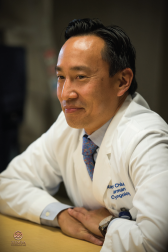Has emergency room call beaten you down to the point of being in a bad mood every time you hear your pager go off? Do you find yourself thinking about retirement despite the fact that your kids are still in middle school? Are you becoming jealous of your friends who have chosen another career and seem to spend all their free time at the gym or on the golf course because they have made partner in their firms? Or, has your career had a slow start due to raising young kids, and now you feel the internal pressure to accomplish the things you know you have the talent but not the time to do?
Mid-life or mid-career crisis happens to many in the general population. Some have regrets about paths not taken or poor professional decisions, and others are bored or have a sense of futility in their line of work. If it happens to everybody, does it happen to us? Some will call this burnout, but I think this is something slightly different. Is it me, or do we just never talk about the mid-life crisis in medicine?
 As you can probably guess, I am in the middle of my career. And, like many of you, medicine is the only career I know. From the age of 17, I have spent the past 30 years totally immersed in the study, practice, and teaching of medicine. This is in stark contrast to the general population, in which—depending on what you read—the average person changes careers five times and holds 12 different jobs in a lifetime. Otolaryngology as a specialty is somewhat narrow in focus, and if you choose to subspecialize then you know that the downside to being the master of your trade is that the trade is really, really small. As a result, you are rarely surprised anymore by a patient condition, surgical cases can feel like work as opposed to fun, and your mind starts thinking about ways you can challenge yourself and bring back some excitement in the work place.
As you can probably guess, I am in the middle of my career. And, like many of you, medicine is the only career I know. From the age of 17, I have spent the past 30 years totally immersed in the study, practice, and teaching of medicine. This is in stark contrast to the general population, in which—depending on what you read—the average person changes careers five times and holds 12 different jobs in a lifetime. Otolaryngology as a specialty is somewhat narrow in focus, and if you choose to subspecialize then you know that the downside to being the master of your trade is that the trade is really, really small. As a result, you are rarely surprised anymore by a patient condition, surgical cases can feel like work as opposed to fun, and your mind starts thinking about ways you can challenge yourself and bring back some excitement in the work place.
Kieran Setiya addressed this issue in a recent Harvard Business Review article entitled “Facing Your Mid-Career Crisis” (Harvard Bus Rev. March-April 2019:135–139). He quoted a 2008 article in which economists found that self-reported satisfaction takes the form of a gently curving “U,” beginning high in youth, bottoming out in our mid-40s, and then recovering as we get older (Soc Sci Med. 2008;66:1733–1749). This pattern happens all around the world, to both men and women, and that drop in satisfaction at the bottom of the U is comparable to the impact felt when being fired or getting a divorce. Tait Shanafelt, MD, published an article on physician satisfaction at different career stages. Middle-career physicians were categorized as being between 11 and 20 years post-training and, compared with early- and late-career physicians, had the highest burnout rates and were the most likely to leave medicine (Mayo Clin Proc. 2013;88:1358–1367).
If mid-life crisis is so prevalent, is it different for physicians? For one, I think we all still feel connected to our work and derive satisfaction from helping others in need. Medicine is a calling for most of us, and it is a privilege to have the trust of others placed in our hands. But that doesn’t mean we still don’t have our baggage mid-career. Manoj Jain, MD, MPH, wrote an excellent article on this topic for KevinMD.com (available here). In the article, he references former NPR reporter Barbara Bradley Hagerty’s book Life Reimagined. Her solutions for mid-career crisis were to concentrate on what matters most, such as marriage and children over work, and to challenge yourself, as it is easy to play it safe as we gain experience. Learn something new every day, and be a rookie at something. Add milestones to your midlife, whether it’s finishing a degree, training for a marathon, or dedicating yourself to a worthy cause. And her most important lesson: Aim for long-term meaning rather than short-term happiness, and you will likely find both.
Her last point resonates with me and I will try to keep my perspective on the big picture. Over the next year, ENTtoday will continue to focus on stories that give our lives purpose. Whether it is conducting ground-breaking research, trying new clinical treatments, training the next generation, or sharing stories on physician entrepreneurs or fascinating hobbies, otolaryngologists live in an experience-rich environment. And although I still may dream of retirement in Santa Barbara from time to time, I am comforted in listening to and writing about many of the wonderful things we do in otolaryngology.
Thanks for reading, and I look forward to speaking soon.
—Alex